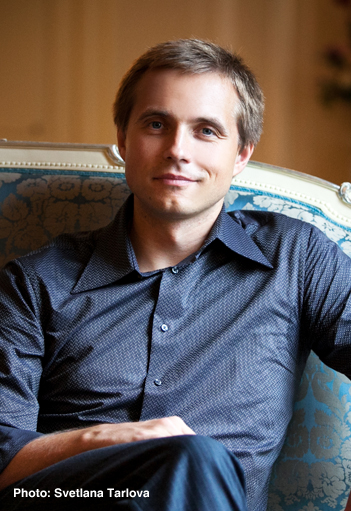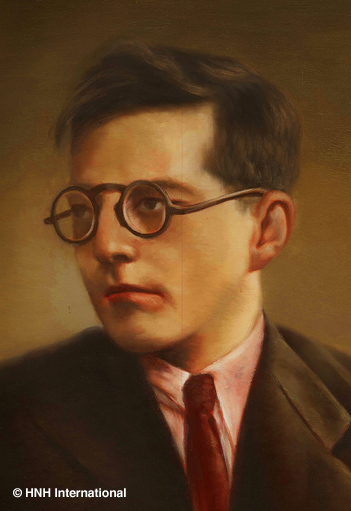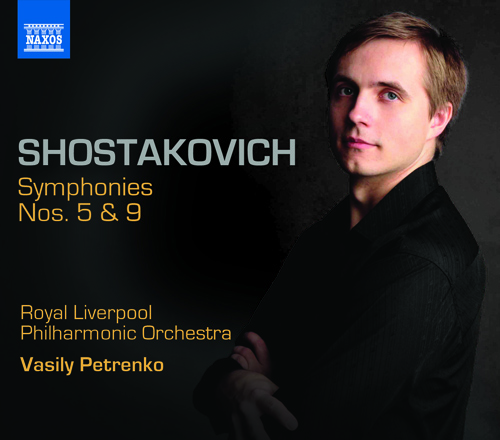SHOSTAKOVICH, D.: Symphonies, Vol. 2 - Symphony No. 5 / Symphony No. 9 (Royal Liverpool Philharmonic, V. Petrenko)
Following their electrifying account of Shostakovich’s Eleventh Symphony (8.572082), Vasily Petrenko and the Royal Liverpool Philharmonic Orchestra explore the profound ambivalences of the composer’s most performed symphony, the Fifth, written in 1937 at a time when he was under intense personal and political pressure from the authorities. The jaunty, neo-classical character of the Ninth Symphony (1945) prompted Shostakovich to remark that ‘musicians will like to play it, and critics will delight in blasting it’. Shostakovich’s startlingly different original draft for the opening of the Ninth’s first movement is available on 8.572138.

Vasily Petrenko is music director of the Royal Philharmonic Orchestra (since 2021), and chief conductor of the European Union Youth Orchestra (since 2015). He is conductor laureate of the Royal Liverpool Philharmonic Orchestra, following his hugely acclaimed 15-year tenure as its chief conductor (2006–21), and has also served as principal guest conductor and subsequently artistic director of the State Academic Symphony Orchestra of Russia (2016–22), chief conductor of the Oslo Philharmonic (2013–20), principal conductor of the National Youth Orchestra of Great Britain (2009–13) and principal guest conductor of St Petersburg’s Mikhailovsky Theatre, where he began his career as resident conductor (1994–97).
Petrenko was born in 1976 and studied at St Petersburg Capella Boys Music School and St Petersburg Conservatory, where he participated in the masterclasses of Ilya Musin, Mariss Jansons and Yuri Temirkanov.
He has worked with many of the world’s most prestigious orchestras including the Berliner Philharmoniker, Gewandhausorchester Leipzig, London Symphony Orchestra and Los Angeles Philharmonic.
He has made frequent appearances at the BBC Proms. Equally at home in the opera house, and with over 30 operas in his repertoire, Petrenko has conducted at Glyndebourne, Opéra national de Paris, Opernhaus Zürich, Bayerische Staatsoper and The Metropolitan Opera.
On disc, his Shostakovich, Rachmaninov and Elgar symphony cycles with the Royal Liverpool Philharmonic Orchestra have garnered worldwide acclaim, and his recording of Tchaikovsky’s Manfred Symphony (Naxos 8.570568) was named Orchestral Recording of the Year at the 2009 Classic FM Gramophone Awards. With the Oslo Philharmonic, he has released cycles of Scriabin and Prokofiev symphonies and Richard Strauss’s tone poems.
For more information, visit www.vasilypetrenkomusic.com.
Gramophone talks to Vasily Petrenko about Shostakovich’s Leningrad Symphony
The Triumph of the Good – Jeremy Siepmann interviews Vasily Petrenko

Dmitry Shostakovich belongs to the generation of Russian composers trained principally after the Communist Revolution of 1917. He graduated from the Petrograd Conservatory as a pianist and composer, his First Symphony winning immediate favour. His subsequent career in Russia varied with the political climate. The initial success of his opera Lady Macbeth of the Mtsensk District, based on Leskov and later revised as Katerina Ismailova, was followed by official condemnation, emanating apparently from Stalin himself. The composer’s Fifth Symphony, in 1937, brought partial rehabilitation, while the war years saw a propaganda coup in the Symphony No. 7, ‘Leningrad’, performed in the city under German siege. In 1948 he fell afoul of the official musical establishment with his Ninth Symphony, thought to be frivolous, but he enjoyed the relative freedom following the death of Stalin in 1953. Shostakovich outwardly and inevitably conformed to official policy, but posthumous information suggests that he remained very critical of Stalinist dictates, particularly with regard to music and the arts. He occupies a significant position in the 20th century as a symphonist and as a composer of chamber music, writing in a style that is sometimes spare in texture but always accessible, couched as it is in an extension of traditional tonal musical language.
Stage Works
Katerina Ismailova remains the principal opera of Shostakovich, other notable works being the early opera The Nose, based on Gogol, and the ballet The Golden Age. Incidental music for the theatre includes scores for Shakespeare’s Hamlet and for King Lear, the same two plays being among the films for which he wrote scores.
Orchestral Music
Symphonies
The 15 symphonies of Shostakovich range in scope from the First Symphony of 1925, a graduation composition, to the embittered Thirteenth, which uses Yevtushenko’s poems. The Fourteenth, which contains settings of various poems, came two years before the Fifteenth and last symphony of 1971. The Fifth Symphony, the immediate post-war Ninth, and the Tenth of 1953 are most often heard, while the Second and Third, with the Eleventh and Twelfth, have more overtly patriotic suggestions about them.
Concertos
Shostakovich wrote an early concerto for piano, trumpet and strings, and a second piano concerto in 1957 as a vehicle for his son, Maxim. He wrote two violin concertos and two cello concertos.
Suites
Shostakovich arranged concert suites from many of his film and theatre scores.
Choral and Vocal Music
Choral works by Shostakovich include The Execution of Stepan Razin, a setting of a text by Yevtushenko. His solo songs are generally less overtly political, evidence of a private rather than public voice.
Chamber Music
The 15 string quartets by Shostakovich form a remarkable body of work, lucid in texture, often moving in musical content. The intensely felt Viola Sonata of 1975 is the third of his duo sonatas, preceded by the 1934 Cello Sonata and the Violin Sonata of 1968. To these may be added two piano trios and the G minor Piano Quintet, written in 1944.
Piano Music
The piano music of Shostakovich includes, in addition to two piano sonatas, an ingenious set of 24 Preludes and Fugues, as well as an earlier set of 24 Preludes.
































